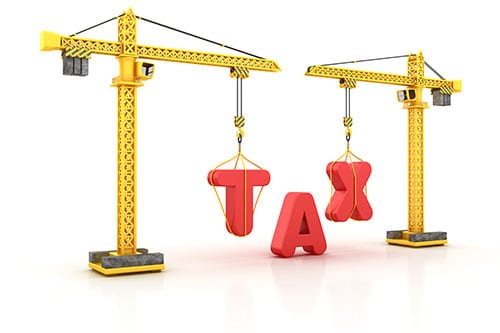How to Build a Proper Tax Plan
Business owners have a lot on their plate, what with managing income, expenses, employees, product or service delivery, and customer satisfaction. Dropping the ball in any one of these areas can create negative cash flow or other problems for your business. However, when it comes to taxes, negative cash flow can come with penalties and interest, and possibly some legal expenses.
The smart small business owner has a production or service delivery plan, management guidelines, and customer satisfaction measurement processes. At least as important is a tax plan for the business, as it also can affect the personal taxes of the owner(s). As governments levy taxes, a good place to look for tax planning information is the SBA, Small Business Administration. They help small businesses to survive and thrive. Here are some of the suggestions from the SBA.gov website for Tax Obligation Management:
Know the types of taxes your business will be paying
The first thing to pop into most business owners’ minds when it comes to taxes is “income tax.” However, there can be, and usually are, a number of tax entities and liabilities that impact small businesses.
- Federal income tax - with volumes of rules, regulations, deductions, rates, and more, federal income taxes for business are complicated, but always necessary if you’re making a profit. How businesses are taxed varies by business structure:
- sole proprietorship
- partnership
- s-corporation
- limited liability company
- c-corporation
- State income tax - not all states levy income taxes, but many do. The small business owner must know if they are liable for state income taxes, how they are levied, paid, and accounting processes required.
- Self employment taxes - if you are in business for yourself, either as a sole proprietor or independent contractor, you are liable for self employment taxes that include Social Security and Medicare taxes. Currently, the combination of the two is 15.3% of taxable income. As you have no employer to split this with, you pay the entire amount.
- Employment taxes - when a business has employees:
- Employers withhold federal and state income tax from employees' wages.
- Employers withhold part of Social Security and Medicare (FICA) taxes from employees' wages and pay a matching amount.
- Employers generally pay federal and state unemployment insurance (FUTA) tax. You report and pay it separately from other taxes.
- Employers may be required to pay into state disability programs.
- Sales taxes - if your business is selling products, and in some states services, you will have state and local sales taxes to charge on purchases and then remit those amounts to the taxing entities.
- Excise taxes - You may pay excise taxes if you manufacture or sell certain products, operate certain kinds of businesses, or use certain kinds of equipment.
- Local taxes - the city, or county may tax businesses as well.
Identifying and quantifying the taxes your business must pay is the first step in building a tax plan.
Tax records, forms, and reporting
An important part of planning is to know which forms you will need to report to taxing entities, how often you must report, and the type of records you must keep. The record-keeping aspect is important for your own management of tax liability, but also for proving your income, expenses, and other information required by taxing jurisdictions.
Your plan should have frequency, due dates, and forms for all tax reporting so that you avoid penalties and interest charges due to late reporting or payments.
Put in place money management for taxes
Taxes come due with different frequency and at different times of the year depending on the taxing jurisdiction and type of tax. It is one thing to know how you are taxed and the tax rates, but it is another to have the money ready when it is due.
The smart business owner will keep track of tax liabilities and segregate the money necessary to pay them when they are due. A separate tax account is a popular approach, with the estimated percentages of amounts deposited in the tax account as the income is received and recorded.
Have an accounting system and advice.
It is critical to have systems in place to capture all income and expenses, record them, report them, and use the records for tax calculations. Current technology has made capturing expenses easier and more timely for the small business owner. Setting up systems to capture information easily and accurately, the small business owner will have an easier task to calculate and remit taxes due when they are due.
Experienced accounting and tax teams is of great value to the small business owner. Regular consultation with an accountant helps in tax planning as well as legally reducing taxes owed.
Take these tips in consideration when setting up a tax plan for the business to avoid headaches and possible financial penalties.

